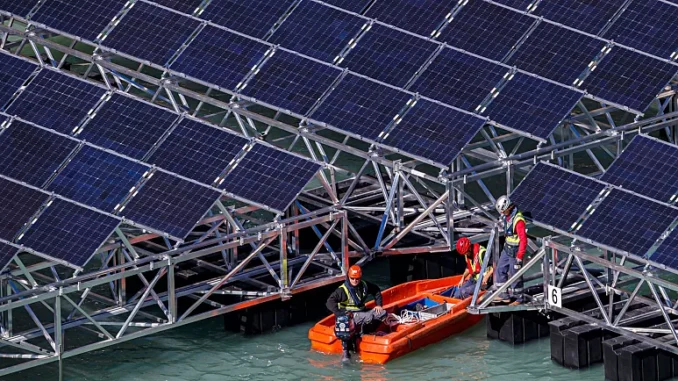
- Procurement is vital for energy companies to manage costs, sustainability, and supply chain efficiency.
- Renewable energy projects face unique challenges such as geopolitical risks, supply chain bottlenecks, and cost volatility.
- Governments need to deepen their understanding of energy sectors and supply chains to support companies in navigating these complex dynamics.
As countries strive to lower their carbon footprint and geopolitical tensions escalate, governments need to play a significant role in boosting nascent industries and regional supply chains. While this shift may increase procurement risk, it also calls for a balance of risk management between governments and industry to build effective supply chains. To thrive in the ever-changing energy industry, Rystad Energy strongly recommends that companies prioritize procurement functions within their corporate organization – and that governments enhance their trade and industrial market intelligence.
Procurement plays a vital role in leading supply chain strategy while prioritizing cost-effectiveness and sustainability. This process requires rigorous market research, skillful negotiations, and continuous monitoring to optimize efficiency and minimize costs. A well-planned procurement strategy can make a large difference for energy companies trying to cut costs, reduce their carbon footprint, and promote sustainability.
The risks associated with low-carbon resources are significantly lower than for oil and gas exploration and extraction. While there is high uncertainty in the expected output for oil and gas, capacity is the primary risk for low-carbon resources. Selling risks in renewables are also much lower because fixed-offtake agreements cover more than half of renewable energy projects, in which power prices are locked in for a certain period. Unlike fossil fuel extraction, renewable projects are developed closer to the end-users, reducing political risk and exposure to geopolitical disturbances.
However, geopolitics still play a significant role in the development of renewables, as low-carbon supply chains are heavily dominated by a few countries. While costs and prices are traditional risks associated with development, procurement risks are much more significant in renewables than in oil and gas. These factors represent important differences that oil and gas companies venturing into renewables should be aware of and aim to manage.
The cost formation – the cost of development or pricing – within solar, wind, and batteries has been volatile in recent years. The Covid-19 pandemic and ongoing conflicts led to a surge in costs due to lockdowns and sourcing issues, pushing some renewable technology costs to jump by 50-100%. As a result, projects have exceeded their budgets and suffered delays, cancellations and financing difficulties. Supply chain bottlenecks have also been a major headache for developers. A lack of supply chain capacity has caused issues with high-voltage electrical equipment, skilled grid connection construction firms, wind installation vessels, data chips, and critical minerals. As a consequence, many developers are at risk of not receiving critical deliveries on time.

Supply chains for oil and gas equipment and services are relatively fragmented and geographically diverse, with suppliers from Europe, the US, Russia, the Middle East, and mainland China. However, the renewable energy supply chain is heavily concentrated, dominated by a few suppliers and with a clear concentration in China and a handful of other nations for mineral extraction. This makes renewables more vulnerable to sourcing risks than oil and gas, as there are fewer supplier options and a greater reliance on specific countries or regions. This means procurement officers within renewables have a greater need to apply careful risk management.
Specialized supply chains can be positive from a cost perspective, but it also poses challenges. Natural disasters, unexpected events and other disruptions can impact the reliability of supply chains – as seen during the pandemic and recently with ship attacks in the Red Sea – resulting in lockdowns and transport disruptions. Scalability and flexibility are also important dimensions, as there will be consequences if demand outstrips supply and countries prioritize their best trade partner or geopolitically important ally. Additionally, there is a risk that a nation or company may use critical materials, components or equipment as an economic weapon or for espionage purposes.
Governments have a role to play in this changing landscape and must have a deep understanding of the sectors and supply chains that they are regulating, as well as the risks and challenges that these sectors face. By doing so, governments can provide valuable guidance and support to corporations, helping them navigate these changing dynamics and succeed in the global marketplace.
Audun Martinsen, head of supply chain research, Rystad Energy



